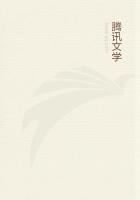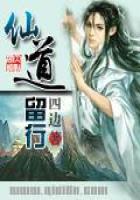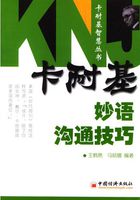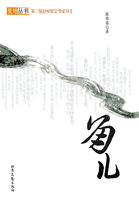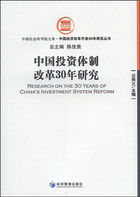On constancy The being of the Good is a certain Will; the being of the Bad is a certain kind of Will. What then are externals? Materials for the Will, about which the will being conversant shall obtain its own good or evil. How shall it obtain the good? If it does not admire the materials; for the opinions about the materials, if the opinions are right, make the will good: but perverse and distorted opinions make the will bad. God has fixed this law, and says, "If you would have anything good, receive it from yourself." You say, "No, but I have it from another." Do not so: but receive it from yourself.
Therefore when the tyrant threatens and calls me, I say, "Whom do you threaten If he says, "I will put you in chains," I say, "You threaten my hands and my feet." If he says, "I will cut off your head," I reply, "You threaten my head." If he says, "I will throw you into prison," I say, "You threaten the whole of this poor body." If he threatens me with banishment, I say the same. "Does he, then, not threaten you at all?" If I feel that all these things do not concern me, he does not threaten me at all; but if I fear any of them, it is I whom he threatens. Whom then do I fear? the master of what? The master of things which are in my own power? There is no such master. Do I fear the master of things which are not in my power? And what are these things to me?
"Do you philosophers then teach us to despise kings?" I hope not. Who among us teaches to claim against them the power over things which they possess? Take my poor body, take my property, take my reputation, take those who are about me. If I advise any persons to claim these things, they may truly accuse me. "Yes, but I intend to command your opinions also." And who has given you this power? How can you conquer the opinion of another man?
"By applying terror to it," he replies, "I will conquer it." Do you not know that opinion conquers itself, and is not conquered by another? But nothing else can conquer Will except the Will itself. For this reason, too, the law of God is most powerful and most just, which is this: "Let the stronger always be superior to the weaker." "Ten are stronger than one."
For what? For putting in chains, for killing, for dragging whither they choose, for taking away what a man has. The ten therefore conquer the one in this in which they are stronger. "In what then are the ten weaker," If the one possess right opinions and the others do not. "Well then, can the ten conquer in this matter?" How is it possible? If we were placed in the scales, must not the heavier draw down the scale in which it is?
"How strange, then, that Socrates should have been so treated by the Athenians." Slave, why do you say Socrates? Speak of the thing as it is: how strange that the poor body of Socrates should have been carried off and dragged to prison by stronger men, and that any one should have given hemlock to the poor body of Socrates, and that it should breathe out the life. Do these things seem strange. do they seem unjust, do you on account of these things blame God? Had Socrates then no equivalent for these things, Where, then, for him was the nature of good? Whom shall we listen to, you or him? And what does Socrates say? "Anytus and Meletus can kill me, but they cannot hurt me": and further, he says, "If it so pleases God, so let it be."
But show me that he who has the inferior principles overpowers him who is superior in principles. You will never show this, nor come near showing it; for this is the law of nature and of God that the superior shall always overpower the inferior. In what? In that in which it is superior. One body is stronger than another: many are stronger than one: the thief is stronger than he who is not a thief. This is the reason why I also lost my lamp, because in wakefulness the thief was superior to me. But the man bought the lamp at this price: for a lamp he became a thief, a faithless fellow, and like a wild beast. This seemed to him a good bargain. Be it so.
But a man has seized me by the cloak, and is drawing me to the public place: then others bawl out, "Philosopher, what has been the use of your opinions? see you are dragged to prison, you are going to be beheaded." And what system of philosophy could f have made so that, if a stronger man should have laid hold of my cloak, I should not be dragged off; that if ten men should have laid hold of me and cast me into prison, I should not be cast in? Have I learned nothing else then? I have learned to see that everything which happens, if it be independent of my will, is nothing to me. I may ask if you have not gained by this. Why then do you seek advantage in anything else than in that in which you have learned that advantage is?
Then sitting in prison I say: "The man who cries out in this way neither hears what words mean, nor understands what is said, nor does he care at all to know what philosophers say or what they do. Let him alone."
But now he says to the prisoner, "Come out from your prison." If you have no further need of me in prison, I come out: if you should have need of me again, I will enter the prison. "How long will you act thus?" So long as reason requires me to be with the body: but when reason does not require this, take away the body, and fare you well. Only we must not do it inconsiderately, nor weakly, nor for any slight reason; for, on the other hand, God does not wish it to be done, and he has need of such a world and such inhabitants in it. But if he sounds the signal for retreat, as he did to Socrates, we must obey him who gives the signal, as if he were a general.
"Well, then, ought we to say such things to the many?" Why should we?
Is it not enough for a man to be persuaded himself? When children come clapping their hands and crying out, "To-day is the good Saturnalia," do we say, "The Saturnalia are not good?" By no means, but we clap our hands also.
Do you also then, when you are not able to make a man change his mind, be assured that he is a child, and clap your hands with him, and if you do not choose to do this, keep silent.




